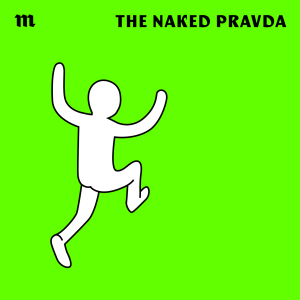
The Naked Pravda
News & Politics Podcasts
Meduza’s English-language podcast, The Naked Pravda highlights how our top reporting intersects with the wider research and expertise that exists about Russia. The broader context of Meduza’s in-depth, original journalism isn’t always clear, which is where this show comes in. Here you’ll hear from the world’s community of Russia experts, activists, and reporters about issues that are at the heart of Meduza’s stories and crucial to major events in and around Russia.
Location:
Latvia
Genres:
News & Politics Podcasts
Description:
Meduza’s English-language podcast, The Naked Pravda highlights how our top reporting intersects with the wider research and expertise that exists about Russia. The broader context of Meduza’s in-depth, original journalism isn’t always clear, which is where this show comes in. Here you’ll hear from the world’s community of Russia experts, activists, and reporters about issues that are at the heart of Meduza’s stories and crucial to major events in and around Russia.
Language:
English
Julia Ioffe’s ‘Motherland’
Duration:00:37:07
Four scenarios for the next chapter in Russia’s war against Ukraine
Duration:00:30:07
Here’s what you do when Russia won’t stay out of your airspace
Duration:00:26:26
Joshua Yaffa explains how Donald Trump got NATO to pay up
Duration:00:50:27
Pulitzer-winner Benjamin Nathans on the Soviet dissident movement’s ‘many lives’
Duration:00:53:59
Everyday politics in Russia with Jeremy Morris
Duration:01:16:16
Jill Dougherty’s Russia
Duration:00:46:36
The banking scandal that broke Russia’s anti-Kremlin opposition
Duration:00:34:28
Moldova’s knife-edge election and E.U. referendum
Duration:00:36:42
How Russian propaganda and ordinary Americans build ‘bespoke realities’
Duration:00:42:03
North Korea's role in the Ukraine War
Duration:00:29:14
Breaking down Russia's 2025 war budget
Duration:00:28:15
The North Caucasian clan warfare behind a deadly dispute at Wildberries, ‘Russia’s Amazon’
Duration:00:25:45
America's expanding crackdown on RT and Moscow's covert influence operations
Duration:00:45:26
Iranian ballistic missiles have entered the Ukraine War chat
Duration:00:22:45
The science of Russian Internet censorship and surveillance
Duration:00:34:57
Russian conscripts and Ukraine's Kursk offensive
Duration:00:37:23
The long-term economic effects of Russia’s war in Ukraine
Duration:00:39:49
How can Ukraine hold the line against Russia?
Duration:00:30:40
Kazakhstan's landmark murder trial
Duration:00:45:31